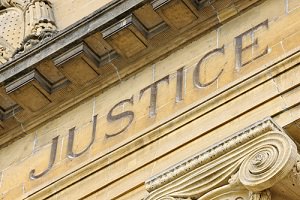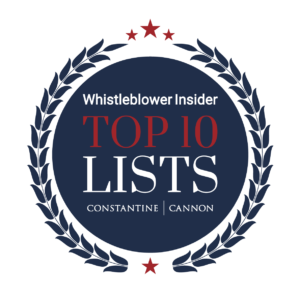Top Ten Non-Healthcare False Claims Act Recoveries of 2022

This year’s Top Ten Non-Healthcare False Claims Act Recoveries exhibit the False Claim Act’s (FCA) enduring ability to combat corporate misconduct across distinct industries. In 2022, the United States recovered hundreds of millions in taxpayer funds falsely obtained by defendants through bribery and bid-rigging schemes, mortgage underwriting fraud, fraudulent loan applications, fraud in the energy sector, and an array of contracting fraud schemes including manipulating small business set-aside contracts, misrepresenting compliance with cybersecurity requirements, overbilling on government contracts, and selling the government substandard products and services.
Although healthcare matters represent the majority of FCA dollars recovered, the list below reminds us that fraud on the government extends far beyond the healthcare arena. This year’s list encompasses over two hundred million dollars in recoveries from just ten of 2022’s non-healthcare FCA recoveries. With this list, we commemorate the whistleblowers and government officials who have worked tirelessly to bring the fraudulent schemes highlighted below to light and ensure these companies are held accountable. We also commend other whistleblowers who exposed fraud in 2022, as well as future whistleblowers who will uncover ever-developing misconduct.
- TriMark USA, LLC – $48.5 Million. In an action initiated by a whistleblower, the country’s largest provider of design services, equipment, and supplies to the foodservice industry agreed to pay over $48 million to resolve claims that two of its subsidiaries manipulated federal contract set-asides for service-disabled, veteran-owned small businesses. According to the government, TriMark enlisted small businesses to secure the contracts while it actually performed all of the production and received the lion share of benefits offered by the federal contract – contrary to federal law. In announcing the settlement, DOJ said it was “the largest-ever False Claims Act recovery based on allegations of small business contracting fraud.”
- Academy Mortgage Corporation – $38.5 Million. A mortgage company based in Utah agreed to pay more than $38 million to settle a False Claims Act case initiated and pursued by a whistleblower, who alleged that Academy improperly originated and underwrote mortgages insured by the Federal Housing Administration. According to the whistleblower, Academy maintained a deficient underwriting process that resulted in false certifications of compliance with underwriting requirements and led to the government paying insurance claims on improperly underwritten loans. The whistleblower received an award of nearly 30% of the total recovery.
- H&M – $36 Million. In a settlement showing the importance of state False Claims Acts, the multinational fast-fashion clothing company paid $36 million to resolve claims brought by a whistleblower under the New York state False Claims Act alleging that the company violated a New York law requiring gift card issuers to convey unused balances on gift cards to the state’s Abandoned Property Fund following five years of inactivity. Investigators determined H&M repeatedly lied to New York state officials about its failure to transfer the unused gift card balances, and falsely told the state that an out-of-state company was operating its gift cards business.
- Delta Airlines, Air France, and KLM Airlines – $14.4 Million. We have grouped these settlements together, because they involve the same underlying wrongdoing and are part of a series of government investigations and settlements involving air carrier liability for false representations under contracts between the airlines and the United States Postal Service. USPS contracted with the airlines to pick up U.S. mail at locations in the United States or at locations abroad, and then deliver that mail to numerous international and domestic destinations. Payment required that the airlines submit information about when and where the mail was delivered, and the government alleged that the airlines falsely reported mail delivery to avoid penalties for mail delivered late or to the wrong location. Delta paid $10.5 million and Air France and KLM collectively paid $3.9 million.
- Kellogg Brown & Root Services, Inc. – $13.67 Million. Shortly before trial, and after more than seven years of litigation, this settlement resolved claims brought by a whistleblower that the engineering construction company and three related companies submitted false claims under KBR’s Logistics Civil Augmentation Program (LOGCAP) III contract for the distribution of logistics support to U.S. Army forces in Iraq. According to the government, KBR employees rigged bids on multiple subcontracts in exchange for kickbacks from those subcontractors. KBR illicitly transferred the inflated cost of subcontracts to the government. As noted in the government’s press release, DOD previously was awarded $51 million by the Armed Services Board of Contract Appeals in a related proceeding.
- iSense, LLC and Specific Diagnostics, Inc. – $10.1 Million. Two biotechnology companies engaged in the development of rapid and minimally-invasive diagnostic devices and sensors , together with their founder, agreed to pay over $10 million to resolve allegations of grant fraud between 2015 and 2019 with respect to grants obtained from the Department of Defense and Department of Health and Human Services. In an investigation reportedly started as the result of an audit by the U.S. Defense Contract Audit Agency, the U.S. alleged that the companies improperly treated costs between them. Related through their common founder, during the relevant time period the companies shared a building and, services and funding. The government alleged that the entities improperly billed for costs incurred by the other, requested compensation in excess of authorized federal limits, and knowingly presented a backdated agreement between them to the government in support of their claim for costs.
- MOX Services LLC – $10 Million. The prime contractor for the construction of a facility at the Dept. of Energy’s Savannah River Site agreed to pay $10 million to settle allegations that, in exchange for kickbacks it received from a subcontractor, it knowingly sought reimbursement for millions of dollars in materials the subcontractor did not actually provide. MOX had contracted to build the Mixed Oxides Fuel Fabrication Facility, which would have repurposed weapons-grade plutonium as fuel for nuclear reactors in the United States; DOE canceled the project in 2018. In 2017, the former site representative for the subcontractor pleaded guilty to charges of conspiring to commit theft of government funds.
- Aerojet Rocketdyne Inc. – $9 Million. In a suit brought by a whistleblower that proceeded to trial on a non-intervened basis, a DOD and NASA contractor agreed – just after trial began – to pay $9 million to resolve claims that the company misrepresented its compliance with cybersecurity requirements that defense contractors implement specific controls to protect sensitive government information from exposure and threats. The case was seen as an important test of a liability theory DOJ will use in its Civil Cyber-Fraud Initiative, and, as noted by DOJ in announcing the settlement, “whistleblowers with inside information and technical expertise can provide crucial assistance in identifying knowing cybersecurity failures and misconduct.”
- PowerSecure, Inc. – $8.4 million. For certain government contracts, the Truth in Negotiations Act (TINA) requires that seller to provide the government with specific cost or pricing data, including in contracts awarded on a “sole source” bases. This settlement follows U.S. claims that PowerSecure violated the False Claims Act when it knowingly withheld required data in connection with securing a sole source contract for the repair and restoration of Puerto Rico’s power grid following the damage caused by Hurricane Maria.
- Conduent Education Services LLC — $7.9 million. As a student loan servicer, Conduent was required to provide reports to the Department of Education, including data on the impact of monthly student loan repayments, principal capitalization and other changes to borrower accounts. The government alleged that between 2006 and 2016, Conduent failed to make required financial adjustments to borrower accounts and failed to provide accurate reports, violating the False Claims Act and program rules. The settlement illustrates how wrongdoing can be investigated by multiple actors in the federal system: the DOJ settlement notes that Conduent had previously entered in to a settlement agreement with the Department of Education. In addition, in 2019, Conduent also entered into a settlement with the Consumer Financial Protection Bureau, paying a fine of $3.9 million to resolve claims that it failed to timely adjust principal balances of student loans.

Annual Whistleblower Insider Top Ten Lists
Every January, Whistleblower Insider looks back at the significant government enforcement actions of the past year. Our Top Ten lists highlight the biggest recoveries and significant enforcement efforts by different government actors in cases of interest to whistleblowers.
Browse Top 10 Lists
Read More:
- The False Claims Act
- Government Contract Fraud
- Fraud in Government Programs
- How to Choose the Best Qui Tam Attorney for You
- Contact us for free, confidential consultation
Tagged in: FCA Federal, FCA State, Government Procurement Fraud, Government Programs Fraud, Top 10,